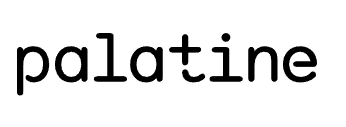Some expected a grand finale, a denouement in which the problems raised by the ruling of the European court of justice against Google on the so-called “right to be forgotten” would be resolved. Instead, a sense of deja vu soon dawned on the final meeting in Brussels, as no new ideas emerged and many of the comments already made in previous meetings were reiterated.
For once, we had more time for questions than questions to ask. Perhaps this was inevitable - or perhaps it was a missed opportunity to run some intellectual risks and think outside the proverbial box. Either way, the meeting demonstrated that the council has now explored all the main issues raised by the ruling. These are the questions I found most significant in the course of our seven consultations.
The sedimentation of personal information online. Some sensitive and private information from the past needs to remain in the past, yet the web is a flatland lacking historical depth. Information is dynamically structured “on the fly” by our searches. How do we ensure that the right kind of personal information may be remembered (no removal of past information) without being constantly recalled (no unnecessary resurfacing of past information)?
A new, two-tier approach to information. The availability of content has been detached by its accessibility. What kind of new equilibrium does this unprecedented decoupling require?
The territoriality of the law versus the non-territoriality of the internet. Removing links from EU-based search engines has limited effect if they remain available through other engines that are only a click away. How can we apply legislation that is based on geography to the network space of the internet?
A conflict by proxy. The “right to be forgotten” and the “right to information” are proxies for the right to privacy (European Convention on Human Rights, article 8; and Declaration on Human Rights, article 12) and for the right to freedom of opinion and expression. Both rights are subject to interpretation, and when they are in conflict, Europe and the US dissent on how to reconcile them. How can such a conflict be resolved?
Information cartography. Today the indexing by search engines is more important than the corresponding information: those who control the map control the territory. At what stage - if any - and how could publishers be involved when their legal contents may be de-linked?
Public interest versus what is interesting to the public. De-linking is not admissible when the personal information, which would no longer be easily accessible, matters to the public good. But when is information of “public interest”, exactly?
In the information society anyone can be a public figure for 15 minutes, to paraphrase Andy Warhol. When does an individual have a public role that makes it inadmissible to de-link what kind of personal information about that individual?
The relevance of relevance. It is impossible to identify the relevance of some personal information without referring to the context within, and the purpose for which that information is being sought. Yet these two variables easily change through circumstances and cannot be easily forecast. What does it mean for personal information that was relevant once not to be relevant anymore? Can it become relevant again in the future?
The all-encompassing nature of “data processing”. The concept includes anything that anyone does with or to data. Thus the definition fails to distinguish between, for example, recording, copying, formatting, retrieving, transmitting, linking, and manipulating data. Should data processing be re-defined to be made less inclusive? And if it was, would search engines still be classed as data controllers?
Algorithms v humans. Should de-linking ever become automatic?
Information powers. The ruling has forced search engines to act as gatekeepers. Is this the only solution and, if not, what better alternatives could be identified?
These are difficult questions. They are not the only ones that were raised during the seven meetings, but the debate has been clarified. The time has now come to publish our report: the most difficult part of the work has just begun.
• Luciano Floridi is director of research, and professor of philosophy and ethics of information, at the Oxford Internet Institute, University of Oxford. He is a member of the Google advisory council on the right to be forgotten. His most recent book is The Fourth Revolution: How the Infosphere is Reshaping Human Reality (Oxford University Press, 2014).
Source: Guardian Technology






